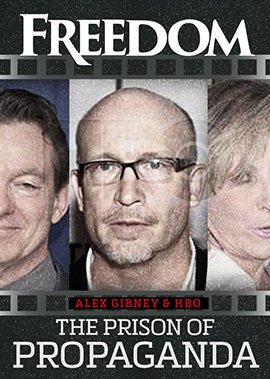hen it comes to upholding and protecting basic human rights, the United States isn’t doing very well at all.
In fact, when the report card arrives at home, if the US was your child, you’d probably ground him and take away his TV privileges and iPad.
But the US is in large—if disappointing—company among the other 194 nations whose human rights records the University of Rhode Island examined and rated as part of its Global RIghts Project.
Frankly, very few are doing well.
The university’s Center for Nonviolence & Peace Studies rated countries on a scale of 100, awarding classroom-type grades as might be expected from an institution of academia. The US scored a deplorable 62.5, or a miserable grade of “D,” putting it almost dead center in ranking among the other countries, in a close tie with Jamaica.
“Global respect has declined over the past decade.”
The report rated countries on their performance in areas like disappearances, political imprisonment, extrajudicial killings, women’s political rights, NGO freedom, freedom of association and assembly, freedom of speech, religious freedom, electoral self-determination, forced labor, torture and human trafficking, among others.
The world’s best, most human-rights-oriented nations were Iceland, Estonia, Denmark, Finland and Monaco, all scoring an “A.” The worst were Iran, Afghanistan, North Korea, Yemen and South Sudan, each with an “F” grade.
Not that anyone else did much better: 62 percent of countries got a failing “F” and only 18 percent received an “A” or a “B.” (Maybe it’s time to start grading on the curve!)
“The global rise in democratic backsliding, inequality and digital repression make me pessimistic about the future of human rights,” said Dr. Brendan Skip Mark, assistant professor of political science and director of the Center for Nonviolence & Peace Studies.
“Global respect has declined over the past decade. Despite a growth in human rights law, institutions, NGOs and technology to document and disseminate information about human rights, things are getting worse. The US has not ratified many human rights treaties and excessive police violence and police shootings, which disproportionately target racial minorities, are so bad they are criticized worldwide,” Mark said.
The US scored poorly on labor rights, on repressing journalists, medics and legal observers, on failing to guarantee safe working conditions and decent wages and benefits.
The study revealed both positive and negative factors affecting the state of human rights. Lower population countries, for example, favored human rights, while larger population countries have poorer human rights records. Wealthy countries tend to have better records than poorer ones and democratic countries tend to do better than nondemocratic countries.
“Unless people demand human rights, governments are unlikely to provide them.”
Rather startling was the study’s finding that democracy in the US is beginning to disintegrate. The study refers to the US as an “anocracy,” or a government somewhere between democracy and autocracy. This does not bode well for the future of human rights in America.
“Given what we know about the way a country’s characteristics correlate with human rights, the US falls about where we’d expect it to be,” Mark said. “However, if the US is no longer a democracy and democratic backsliding continues, then human rights are likely to significantly decline in the near future.”
There are positive steps which can increase conditions. For example, improved economics would decrease child labor and human trafficking while improving working conditions and wages. But the most important element, hands down, is education.
“Unless people demand human rights, governments are unlikely to provide them,” the report states. Mark said, “People do not know what their human rights are, whether their governments are violating human rights and how their country compares to the rest of the world…. Human rights education is the first step to creating demand for human rights.”
There is obviously much more work to be done, but inspired by the words of Scientology Founder L. Ron Hubbard that “Human rights must be made a fact, not an idealistic dream,” the Church-supported initiatives United for Human Rights and Youth for Human Rights International are doing the hard work, and have made huge strides across the globe in enlightening millions on their fundamental human rights.
Provision of instructional videos, films and books in 17 languages, including 30 public service announcements—one for each human right in the Universal Declaration of Human Rights—have spread the word in over 100 nations that human rights are vital and must be protected.
As Nelson Mandela said, “Education is the most powerful weapon which you can use to change the world.”






















